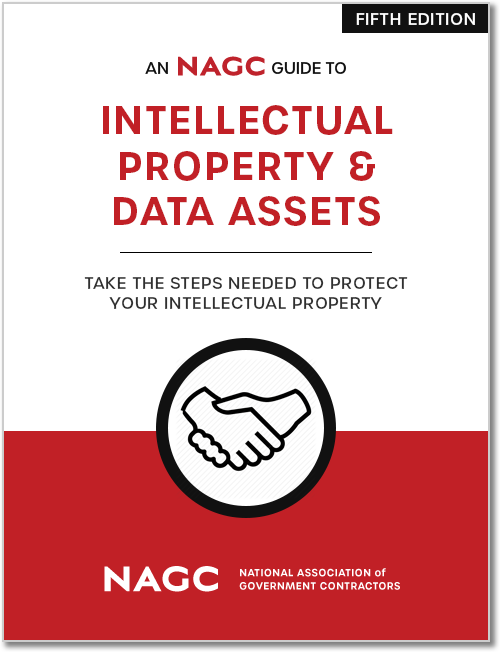
For companies large and small, the commercial value of their innovations and creative thinking - their intellectual property - can represent their most valuable assets. Receiving research and development funding, or being awarded contracts, from government agencies may represent another important income source, however when partnering with the government firms must take the steps needed to protect their intellectual property portfolio.
Intellectual property ("IP") is a term for the creative material your business generates that is protected under patent, copyright, trademark and trade secrets law. These general categories of intellectual property law are extended to include "Data Rights," which protect a company's technical data or software.
Get started today with the guide brought to you by NAGC Press, the publication arm of the National Association of Government Contractors.
Guide Index:
Introduction
Section One: Intellectual Property and Licensing
Chapter 1: Intellectual Property Overview
Chapter 2: Making IP Choices For Your Business
Chapter 3: Protecting Your IP Through Registration
Chapter 4: Licensing -- How Your IP Generates Revenue
Section Two: Intellectual Property Issues In Government Contracting
Chapter 5: Government Contracting and Intellectual Property Overview
Chapter 6: Intellectual Property In The Proposal and Negotiating Phase
Chapter 7: Intellectual Property During Contract Performance and After
Appendices
Appendix A: Further References
Appendix B: Checklists
Appendix C: Forms